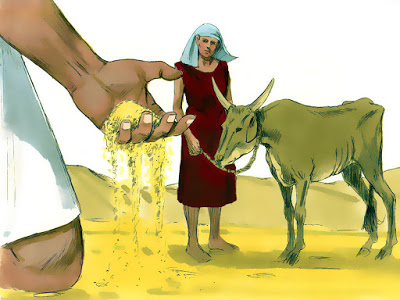Strangers and Aliens

Deuteronomy 10: 19 You shall also love the stranger, for you were strangers in the land of Egypt.
Leviticus 19:34 The alien who resides with you shall be to you as the citizen among you; you shall love the alien as yourself, for you were aliens in the land of Egypt: I am the Lord your God.
(NRSV)
See this article: Jeff Sessions got it right on immigrants and the Bible. It has been circulating around social media, and it has caused quite a stir.
The basic argument of James K. Hoffmeier is that “social justice advocates” often employ a simplistic read of the Old Testament when they use it to advocate for amnesty for undocumented immigrants.
“Strangers” and “aliens” were not broad terms referring to just anybody who happens to wander into a foreign land, Hoffmeier argues, but rather people with varying levels of permission to be there.
Hoffmeier writes: “I would argue that if one wants to apply biblical passages … to our context, green card holders would better correspond. They need protections so as not to be abused and exploited as we have unfortunately seen. Old Testament law simply does not address how people in the U.S. illegally should be treated.”
He may be right in the Hebrew language translation, I don’t know. I support all efforts to employ good scholarship and make sure we are reading as accurately as possible. But using his own argument, he is wrong on at least two points.
The first: Is he actually suggesting that those without a green card should be abused and exploited? Abuse and exploitation are never appropriate actions, regardless of whether the Old Testament fails to mention them or not. The argument that legal status is the determining factor for protections from abuse and exploitation is morally empty by any standard. People do not void their human rights just because of their legal status. That’s why they are called “rights.” They don’t go away just because they are in an awkward situation.
For example, if a cop pulls you over for speeding, the fact that you broke the law does not mean that it’s a free-for-all and the cop can suddenly do whatever he wants to do. Absolutely not. You have a fracture in your relationship with the state that needs to be addressed, but all your other rights remain intact. The only issue between you and the state is whatever specifically relates to your speeding. The cop cannot rape you, take your money or attack you just because of speeding. The same is true for immigration status.
Second point: The main premise of Hoffmeier is that “green card holder” is the closest modern equivalent of the aliens and strangers mentioned in these texts. I would argue that green card holder is not inclusive of all the immigrants in question. Instead of an “alien” being compared to a green card holder, the alien could also be compared to a refugee. Green card holders often have the means to live comfortably and safely in their home country. Some are refugees, some are not. Refugees specifically come because they are fleeing a hostile situation. Refugee is a necessary category (along with green card holder) to describe these sanctioned aliens, because of the next point:
There are two kinds of refugees. The first are those approved and brought over by the State Department. The second are those who should be considered refugees but due to political games are not. Most undocumented immigrants in America meet the moral definition of refugee. They may not be sanctioned by the state, but they are sanctioned by God. Many of them are not “officially” declared by the US government as refugee, but that is a sin on us, not them. They meet the qualifications. Many are fleeing violence, war or life-threatening poverty, much of it brought on by the actions of our own country. They should be welcomed in our land with full rights. The fact that they are not is OUR sin, not theirs.
Hoffmeier used the example of Jacob. Due to a drought, Jacob’s family fled to Egypt. They got the permission of the Pharaoh to do this. That’s wonderful. However, what would Jacob’s family have done if the Pharaoh did not grant this permission and give the equivalent of a “green card”? They would be faced with a tough choice—either watch their family and flocks die in the drought or escape into Egypt without permission. Every responsible father would do the right thing and break a law instead of watch his family die. You would do it. I would do it. And we would be called heroes, not criminals. This more accurately captures the situation of undocumented immigrants in the USA today. If the Pharaoh (i.e. US government) does not grant permission, the one who commits the sin is NOT the undocumented immigrant trying to feed his family—the one who commits the sin is the one who denies permission.
The Scripture quotes at the top of this post tell us to treat the stranger as we were treated in Egypt. What happened in Egypt? We were in a desperate situation and needed to escape a drought. The Pharaoh welcomed us. Our job, according to Scripture, is not to differentiate between those who are welcomed legally and those who are not—rather, our job is to do the welcoming and grant legal permission to those who need it.
The term green card holder is helpful, but it is not inclusive of all the people and situations that Scripture is describing.
We are to treat people as we were treated in Egypt. How we were treated there? We were welcomed. Hoffmeier starts his definition after the welcoming had already happened. It seems to me that the decision to do the welcoming is an integral part of the moral decision that Scripture is describing.
Visit Frank Lesko’s Blog The Traveling Ecumenist

